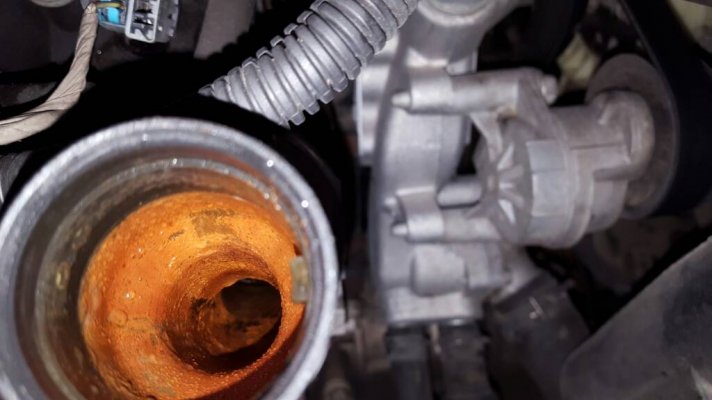Engine oil color can vary due to different factors such as age, contaminants, and additives. If you’ve noticed that your engine oil appears orange, you might be wondering what it means.
Causes of Orange Engine Oil
Engine oil that has turned orange could be a result of specific additives or contaminants present in the oil. The presence of active Nitrogen species in certain lube additives can give the oil an orange hue. This color change indicates that the oil may have reacted with these additives, causing the distinct coloration.
Normal Oil Color
Typically, fresh and clean engine oil starts with a golden or amber hue, resembling liquid honey. As the oil ages and gathers contaminants, it gradually darkens, transitioning from light amber to darker shades such as brown or black. However, an orange tint indicates a different chemical reaction within the oil.
Read More: What to Do if Engine Oil is Black?

Credit: www.tahoeyukonforum.com
Credit: www.toyotanation.com
Significance of Orange Engine Oil
While darkening oil is usually associated with contaminants or overheating, the presence of an orange color specifically hints at a reaction with certain additives or chemical compounds. It’s essential to monitor any color changes in your engine oil, as they can provide insight into the condition of your vehicle’s lubrication system.
What to Do
If you notice that your engine oil has turned orange, it’s advisable to consult with a mechanic or automotive expert to determine the exact cause of the discoloration. They can conduct a thorough examination of your vehicle’s oil system and recommend any necessary steps to rectify the issue.
Conclusion
Understanding the color changes in your engine oil can help you identify potential problems early on and prevent any severe damage to your vehicle. Keep a close eye on the condition of your engine oil and address any unusual coloration promptly to ensure the optimal performance of your car’s engine.
